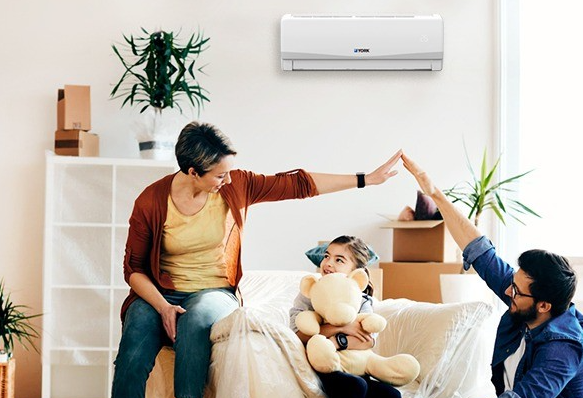
Imagine coming home after a long, hot summer day, stepping into a perfectly cool and refreshing space. Or picture yourself snuggling up in a warm, cozy home during the coldest winter nights. This is the magic of well-maintained AC & heating systems. These systems are the backbone of our home comfort, ensuring we're comfortable no matter the weather outside.
Understanding Your AC System
Let's start with your air conditioning (AC) system. How does it work? Essentially, your AC unit removes heat and humidity from your indoor air, circulating cool air back into your home. This process involves a refrigerant that absorbs heat, a compressor that pressurizes the refrigerant, and a condenser that releases the heat outside. When your AC is functioning properly, it creates a comfortable and healthy environment.
Key Components of an AC System:
- Compressor: The heart of your AC, it pressurizes the refrigerant.
- Condenser: Releases heat from the refrigerant to the outside air.
- Evaporator: Absorbs heat from the indoor air, cooling it down.
- Refrigerant: A substance that absorbs and releases heat as it changes state.
- Thermostat: Controls the temperature settings.
Regular maintenance is crucial for your AC system. Changing air filters regularly, cleaning the condenser coils, and scheduling professional check-ups can prevent costly breakdowns and extend the life of your unit. A clean filter allows for optimal air flow, making your unit work more efficiently, saving you money on your electricity bills.
Demystifying Your Heating System
Now, let's turn our attention to your heating system. Whether you have a furnace, heat pump, or boiler, the goal is the same: to keep your home warm and cozy during the colder months. Furnaces are the most common type, burning fuel (natural gas, propane, or oil) to heat air, which is then circulated through your home via ducts. Heat pumps, on the other hand, transfer heat from the outside air into your home, even when it's cold outside. Boilers heat water, which is then circulated through radiators or baseboard heaters.

Types of Heating Systems:
- Furnaces: Use fuel to heat air.
- Heat Pumps: Transfer heat from the outside air.
- Boilers: Heat water for radiators or baseboard heaters.
Just like your AC, your heating system requires regular maintenance. Checking and replacing air filters, inspecting burners, and ensuring proper ventilation are essential for safety and efficiency. A properly maintained heating system not only keeps you warm but also reduces the risk of carbon monoxide leaks and other hazards. Safety is paramount when dealing with heating systems, so always prioritize professional inspections.
The Importance of Professional AC & Heating Services
While some maintenance tasks can be done yourself, professional AC & heating services are vital for ensuring your systems operate at their best. Certified technicians have the knowledge and tools to diagnose and fix complex issues, perform thorough inspections, and provide expert advice. They can also help you choose the right system for your home and ensure it's installed correctly.
Benefits of Professional Services:
- Expert Diagnosis: Quickly identify and fix issues.
- Efficient Repairs: Ensure systems run optimally.
- Preventative Maintenance: Extend the lifespan of your systems.
- Safety Inspections: Reduce risks and hazards.
- Energy Efficiency: Save money on utility bills.

Choosing a reputable AC & heating service provider is essential. Look for companies with certified technicians, positive customer reviews, and a commitment to quality service. Don't hesitate to ask for recommendations and compare quotes before making a decision. Investing in quality service is an investment in your comfort and peace of mind.
Tips for Maximizing Your AC & Heating Efficiency
Beyond regular maintenance, there are several steps you can take to maximize the efficiency of your AC & heating systems:
- Seal Air Leaks: Use weather stripping and caulk to seal gaps around windows and doors.
- Insulate Your Home: Proper insulation helps maintain consistent temperatures.
- Use a Programmable Thermostat: Set temperatures to adjust automatically when you're away or asleep.
- Keep Vents Clear: Ensure vents are not blocked by furniture or curtains.
- Upgrade to Energy-Efficient Systems: Consider replacing old units with newer, more efficient models.
By implementing these tips, you can significantly reduce your energy consumption and lower your utility bills. Energy efficiency is not only good for your wallet but also for the environment.
Conclusion: Investing in Your Comfort
Your AC & heating systems are essential for maintaining a comfortable and healthy home. By understanding how they work, performing regular maintenance, and seeking professional services when needed, you can ensure they operate efficiently and effectively. Prioritizing your comfort means investing in the long-term health and efficiency of your AC & heating systems. Stay cool in the summer, stay warm in the winter, and enjoy the comfort of your home year-round.
No comments:
Post a Comment
Note: Only a member of this blog may post a comment.